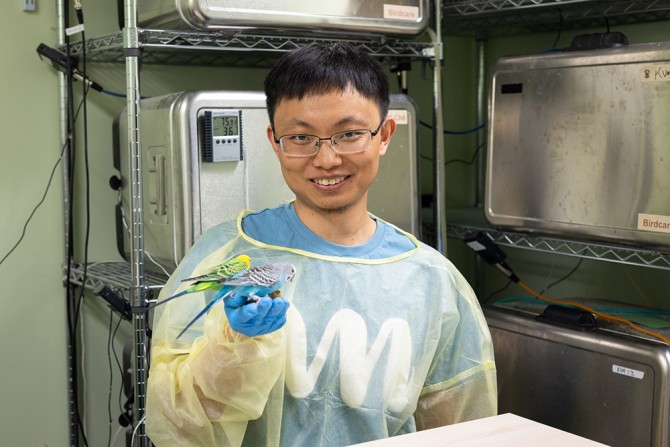News directly from Cornell's colleges and centers
Klarman Fellow studies vocal learning in parrots
By Kate Blackwood
Well-known for their vocal mimicry, parrots can articulate words, repeat phrases and sometimes even create their own sentences.
“This ability is very rare in animals,” said Zhilei Zhao, Klarman Fellow in neurobiology and behavior in the College of Arts and Sciences (A&S). “Very few animals can do this, including dolphins, some whales and some birds. I’m trying to understand how this is achieved in the brain of parrots.”
By studying the brain mechanisms of vocal learning in domesticated budgerigar parrots (popularly known as parakeets or budgies), Zhao explores how social learning is implemented in the brain.
“Zhilei is that rare scientist who can really bridge fields,” said Jesse Goldberg, associate professor of neurobiology and behavior (A&S), Zhao’s faculty host. “His Ph.D. work on the mechanisms by which mosquitos use smell to home in on humans combined true breakthroughs in three distinct fields: genetics, neuroscience, and chemistry. He engineered one of the first transgenic mosquitoes, used cutting-edge neurotechnological tools to visualize the neural activity of mosquito olfactory systems responding to unique aspects of human scent, and finally used clever tricks of chemistry to figure out precisely what mosquitoes find appealing. It was a landmark set of experiments.”
Read the full story on the College of Arts and Sciences website.
Media Contact
Get Cornell news delivered right to your inbox.
Subscribe

